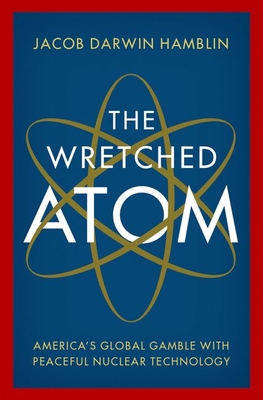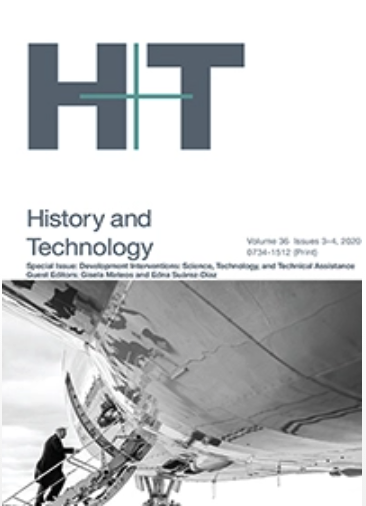Ukraine’s inability to stop Russia from seizing Crimea may sound the death knell for the global nuclear order.
For years I have written about the environmental dimensions of nuclear power and nuclear weapons programs, and more recently I have been exploring the connection between environmental crisis rhetoric and the proliferation of nuclear communities all over the world. Earlier this month I participated in a two-day symposium in Switzerland on the creation of the nuclear non-proliferation treaty—-the origins of the nuclear order.
The unexpected backdrop of that workshop-—the casual takeover of Crimea by Russian-speaking soldiers—-might turn out to be the end of the very international order we were there to discuss. It was surreal to listen to one participant, Mariana Budjeryn, tell us about Ukraine’s decision to join the treaty in the 1990s, while most of our coffee-break conversations turned upon the uncertainty in Crimea. We all grappled for the lessons of history, and it was hard not to wonder how different the situation would be now, had Ukraine never signed on the proverbial dotted line.
Ukrainians have been thinking it from the moment the first Russian soldiers entered Crimea: if Ukraine still had nuclear weapons, its territorial integrity would not have been treated so cavalierly. The lesson being drawn, that possession of nuclear weapons promotes security, is one that flies in the face of US foreign policy since 1945.

It is the kind of counterfactual that drives historical debate, but it is not a purely academic question. Among the many tense speeches at the United Nations Security Council on March 13, 2014, Lithuanian ambassador Raimonda Murmokaité put it most plainly: Ukraine had been guaranteed possession of Crimea by Russia in exchange for relinquishing its nuclear weapons.
The point should make the world shudder, but it was lost in a sea of platitudes from other speakers about how it was “not too late” to resolve the current crisis peacefully. Most ambassadorial speeches stuck to traditional phrases such as “territorial integrity” and “national sovereignty.” Russian ambassador Vitaly Churkin portrayed his country’s actions as fully consonant with legal norms, a kind of parallel to the West’s handling of the Kosovo crisis.
Ukraine’s nuclear history is one of devastation, hope, and now powerlessness. It is one of the most contaminated countries of the world, as former host to the Soviet Union’s weapons arsenal and as the site of the Chernobyl reactor meltdown of 1986. Traumatized by that experience, Ukrainians tried to turn away from both civilian and military nuclear technology, placing a short-lived moratorium on new reactors and disavowing nuclear weapons in 1990. Then, with the breakup of the Soviet Union, Ukraine inherited the third-largest nuclear force on the planet, with nearly two thousand strategic warheads and some 2,500 tactical nuclear weapons. For a brief period, Ukraine was armed to the teeth, not only with warheads but also with delivery systems such as intercontinental ballistic missiles, strategic bombers, and cruise missiles. Yet it voluntarily handed them over to Russia, removing itself from the list of nuclear weapons states.
A crucial step in Ukraine’s disarmament was its decision to sign and ratify the Treaty on the Non-proliferation of Nuclear Weapons. In return for relinquishing its arsenal and joining the non-proliferation regime, Ukraine gained territorial security assurances from both the United States and Russia.
On paper, the non-proliferation treaty seems like the backbone of international security, with nearly two hundred states party to it. In reality, it has struggled with legitimacy from day one. In the 1960s, panicked by China’s nuclear test, the United States and Soviet Union hammered out a deal with other countries, promising easy access to civilian nuclear technology, along with a promise to work toward disarmament, if other countries would agree not to develop weapons. But the treaty has a serious credibility problem that the current crisis is only deepening. Long ago, India called it a system of nuclear apartheid, and it has been plagued by failures on many sides, such as cheating by non-nuclear states, insufficient attention to the environmental and human dimensions of the nuclear fuel cycle, tepid efforts at disarmament by nuclear states, and lack of genuine commitment by all parties at various stages in its long history.
Most of the countries genuinely wanting nuclear weapons capability-—India, Israel, and Pakistan-—never bothered signing it. Most other countries did, accepting what has been dubbed the “grand bargain.”
The treaty’s fatal flaw may be the inability to guarantee security for states that join.
Since the Cold War, the non-proliferation treaty has become a vehicle for policing rather than protecting member states, justifying war and economic sanctions. The most egregious case was the Iraq war, which the United States launched after reviewing what turned out to be flimsy evidence of a renewed nuclear program under Saddam Hussein. Similarly, Iran has faced enormous pressure to move away from capability to build the Bomb. North Korea has become a pariah state, in part for withdrawing from the treaty and building a bomb.
The crisis in Crimea is more than an international crisis about a nation’s legitimate borders. It is also a serious test of nuclear non-proliferation as a viable idea in international relations. Ukraine had the weapons, and gave them up in return for security assurances. When it joined the non-proliferation regime it signed a social compact with 180+ nations, brothers-in-no-arms. They all are now trying with words and economic sanctions to stop Russia.
If Crimea is so easily plucked from Ukraine, it will telegraph a message to the world that nuclear weapons programs might indeed be necessary to protect any nation’s sovereignty. The non-proliferation treaty will have shown itself to be a mere binder of paper that can justify wars, but not protect those who give up weapons.




Leave a comment